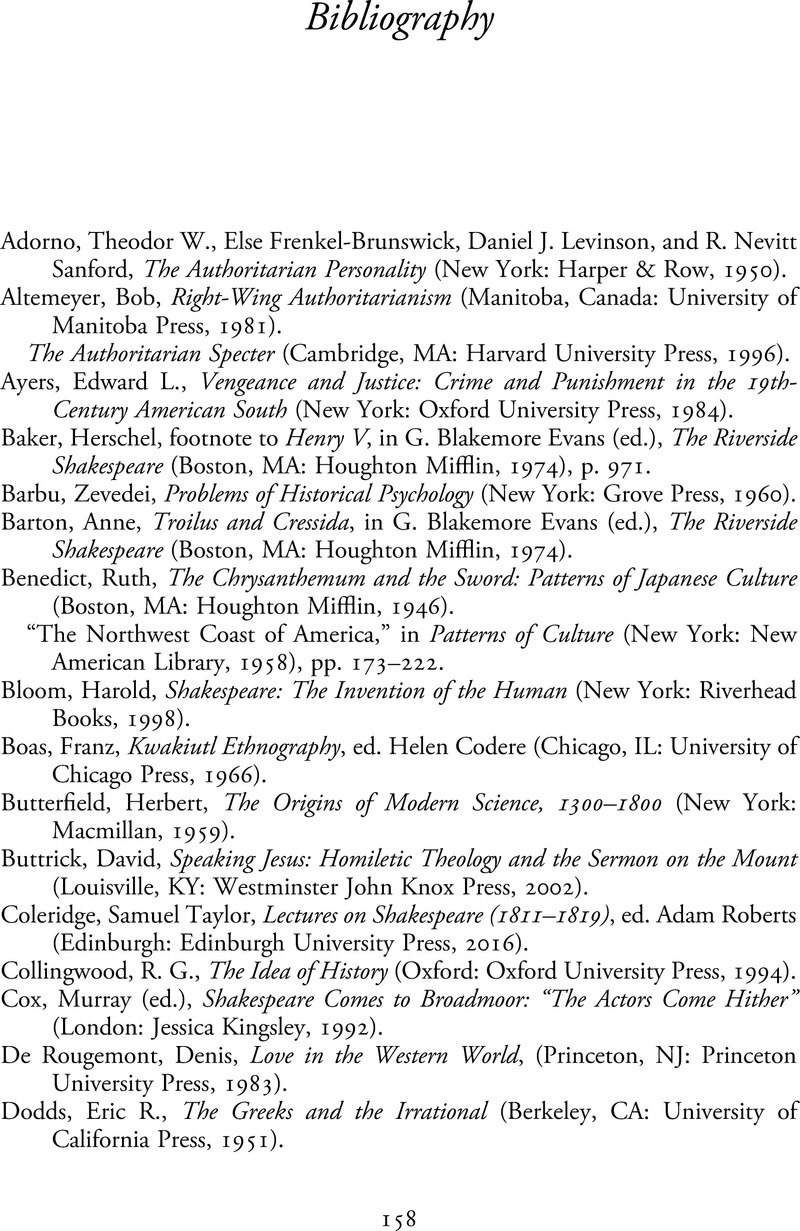Book contents
- Holding a Mirror up to Nature
- Holding a Mirror up to Nature
- Copyright page
- Dedication
- Epigraph
- Contents
- Introduction
- Chapter 1 Shame and Guilt in Personality and Culture
- Chapter 2 The Cycle of Violence in the History Plays
- Chapter 3 Fathers and Mothers
- Chapter 4 Make War, Not Love
- Chapter 5 The Motives of Malignity
- Chapter 6 Moral Nihilism and the Paralysis of Action:
- Chapter 7 Apocalyptic Violence
- Chapter 8 Transcending Morality, Preventing Violence
- Chapter 9 The Form and Pressure of Shakespeare’s Time and Ours
- Acknowledgments
- Bibliography
- Index
- References
Bibliography
Published online by Cambridge University Press: 25 November 2021
- Holding a Mirror up to Nature
- Holding a Mirror up to Nature
- Copyright page
- Dedication
- Epigraph
- Contents
- Introduction
- Chapter 1 Shame and Guilt in Personality and Culture
- Chapter 2 The Cycle of Violence in the History Plays
- Chapter 3 Fathers and Mothers
- Chapter 4 Make War, Not Love
- Chapter 5 The Motives of Malignity
- Chapter 6 Moral Nihilism and the Paralysis of Action:
- Chapter 7 Apocalyptic Violence
- Chapter 8 Transcending Morality, Preventing Violence
- Chapter 9 The Form and Pressure of Shakespeare’s Time and Ours
- Acknowledgments
- Bibliography
- Index
- References
Summary

- Type
- Chapter
- Information
- Holding a Mirror up to NatureShame, Guilt, and Violence in Shakespeare, pp. 158 - 163Publisher: Cambridge University PressPrint publication year: 2021

